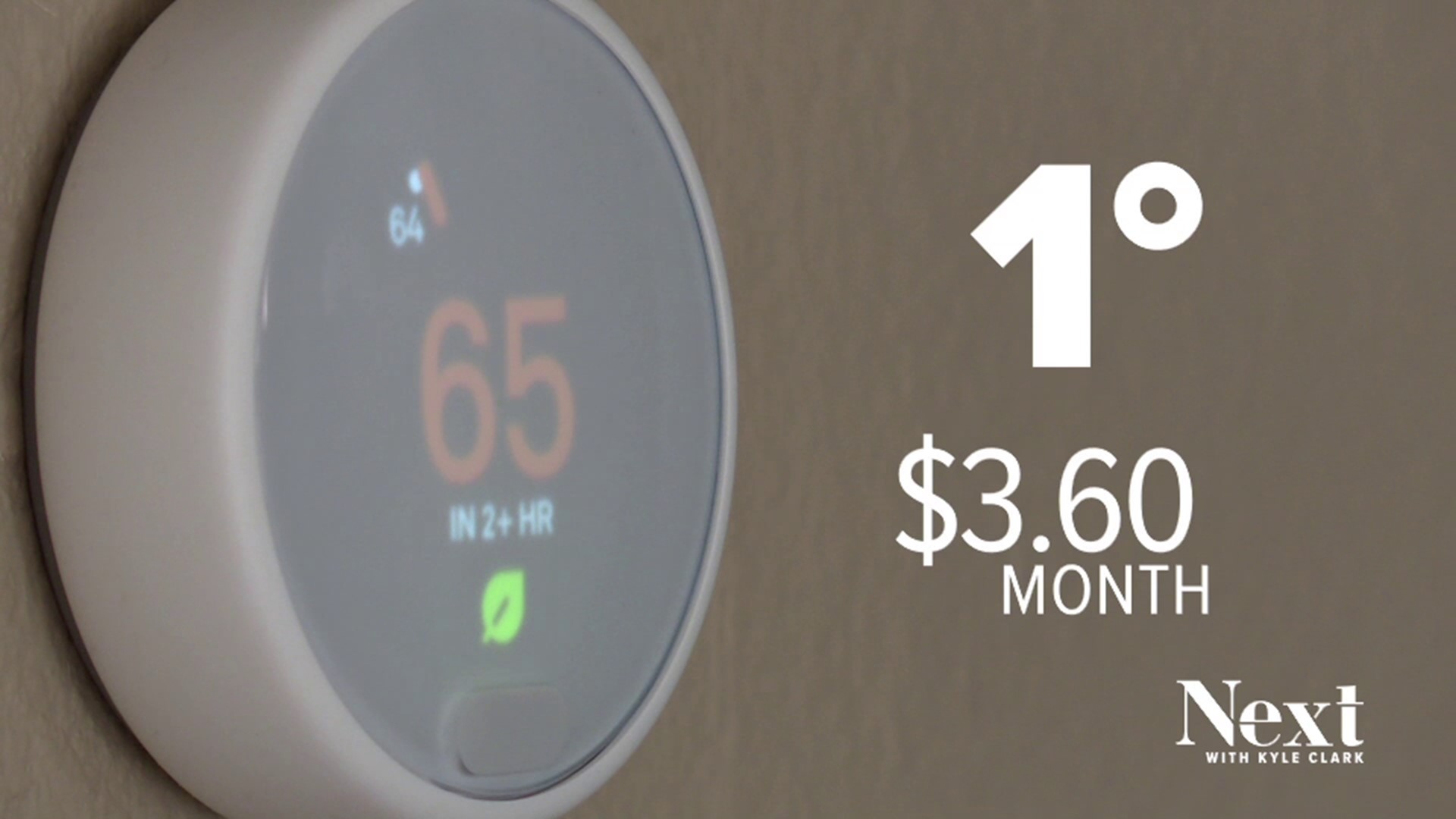DENVER — It will be below zero overnight into Tuesday.
A night where Xcel Energy encourages customers to “lower your thermostat a few degrees, ideally to 68 degrees or lower,” so that customers can save on energy bills.
How much does that save exactly?
Colorado School of Mines Mechanical Engineering professor Paulo Tabares ran some numbers on a 1,000, 2,000 and 3,000 square foot home.
Each home produced the same relative energy savings.
“For every degree that you either increase or decrease, you’re going to increase by 3% your heating bill, if you decrease it by one degree, you’re going to decrease your bill by 3%,” Tabares said.
Using a computer program created by the National Renewable Energy Lab (NREL) and calculating the data, he determined that a user can save 3% for every degree they turn down their thermostat and increase their bill 3% for every degree.
“Let’s say you pay $100 a month in heating. That means for every degree that you are going to decrease your set point, you will save $3 per month,” Tabares said.
But that assumes that you lower your thermostat one degree every day of that month.
“Now, if you say that’s not really much, and I agree, only $3 right? But if you reduce it 5 degrees from 70 to 65, you’re talking about 15%,” Tabares said.
What about on a night like Monday night, when it will be below zero degrees. What if you want to heat your home one extra degree. What will that cost?
Using the $100 bill example, which saves about $3 a month, it would be around 10 or 11 cents for the one night’s use.
To calculate this estimate for your own home, find your gas bill. Take your total before franchise fee and taxes and subtract the service and facility charge, DSMCA and Energy Assistance Charge.
Then, take what’s left and multiply that by 3%.
That represents your one month total for increasing or decreasing your temperature one degree.
Now, divide that by the number of days that your meter was invoiced and that will give you an estimate per day for that one degree decision.
“What I do is I lower the set point thermostat to 58 degrees Fahrenheit for the entire house,” said Dr. John Zhai, a University of Colorado professor of architectural engineering.
Zhai just got a high gas bill last month, so he and his wife are trying a new approach. They are the only ones at home at night, so they are setting the thermostat low, while using a space heater in the bedroom.
“The electrical heat I use is a very simple one, a very cheap one, $100. They don’t even have temperature control. You know one through six setting,” Zhai said. “The space heater I use, I use for eight hours at night. I use the minimum heat, just 200 watts because I use setting one. That one will lower the total energy consumption.”
He said he does not set his home lower than 55 degrees, to avoid freezing the pipes. He also sets his home to heat up a couple of hours before his alarm goes off.
SUGGESTED VIDEOS: Full Episodes of Next with Kyle Clark

